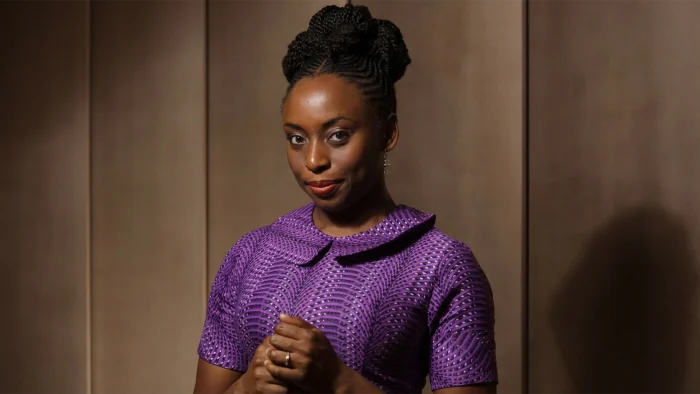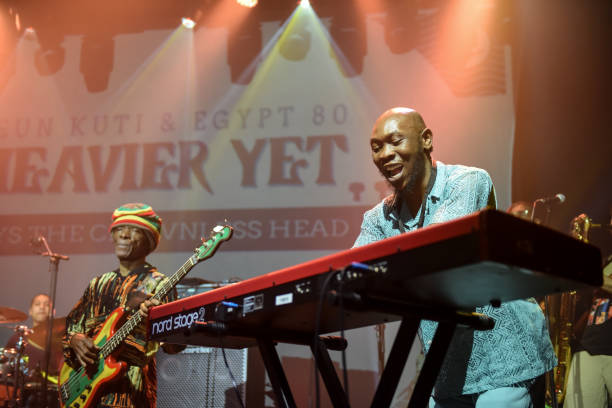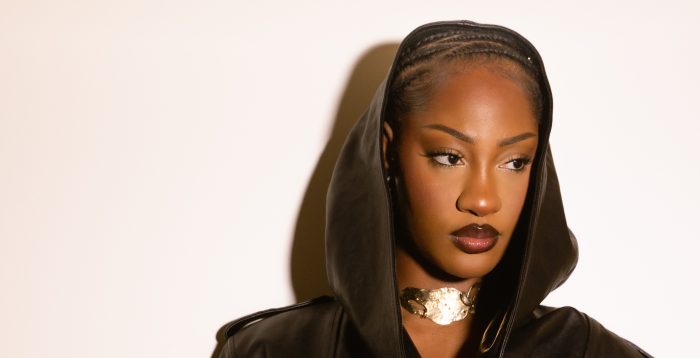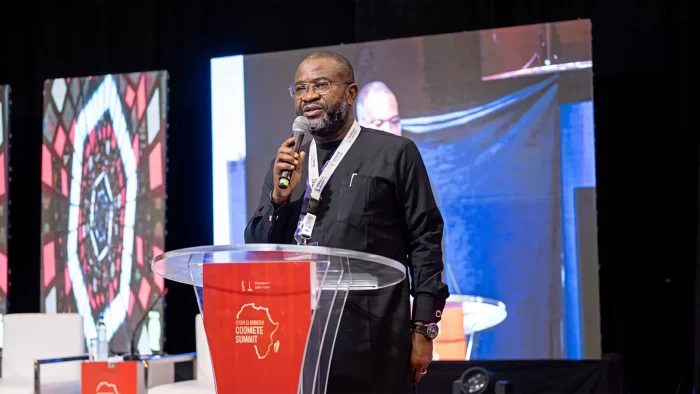For most lovers of Nigerian Christian gospel music, Limoblaze is likely a familiar name. Born Samuel Onwubiko, the award-winning singer has amassed more than 30 million streams, built a global fanbase, and helped spotlight the Nigerian Christian gospel scene to international prominence.
[ad]
His 2022 smash hit Jireh, featuring Grammy-winning American rapper Lecrae and English singer Happi, earned him a slot across three Billboard charts, including the US Afrobeats Songs of 2022, as well as a UK MOBO award and a Headies nod. Since then, the 28-year-old singer kept his audience engaged with a number of singles leading up to his just-released album, Young and Chosen. The 14-tracker spin is his seventh studio album in eight years.
Limoblaze, featuring an array of global Christian Gospel musicians including Joe L Barnes, Sam Rivera, and Annatoria, among others, the album is a fusion of hip hop, RnB, emo-pop and soft-funk, showcasing Limoblaze’s trademark sonic range and vocal delivery.
READ ALSO: Gospel music losing spirituality, artistes now worldly – Apostle Lenny
Limoblaze began his musical pursuits from his childhood church in the suburbs of Makurdi, honing his singing talent, while melding influences from the likes of 2pac, Eminem, 50 Cent, Cece Winas, Frank Edwards, and more. He’s also an avid collaborator, working with many notable voices including Travis Greene, D.A. Truth, Ada Ehi, Gaise Baba, Johnny Drille, and Banky W, with his soft-toned vocals and emotive lyrics.
[ad]
With melodies that fuse refreshing sermons and party-starting bops, Limoblaze is a noteworthy figure helping to push Christian pop to even more diverse audiences. He joins us on this week’s Guardian Music, taking us through his creative journey with Young and Chosen, his experiences working with secular musicians, thoughts on the Tems’ BET controversy, as well as his mission to inspire hope through his music.
Congratulations, Limoblaze on your new record, Young and Chosen. How did you arrive at this record?
The direction to make this album started about a year ago when I was on tour. I was in a phase of my career that felt like I’d been chosen to lead a generation. So, I wanted to make music that feels like the soundtrack of the lives of the people that I’ve been called to lead.
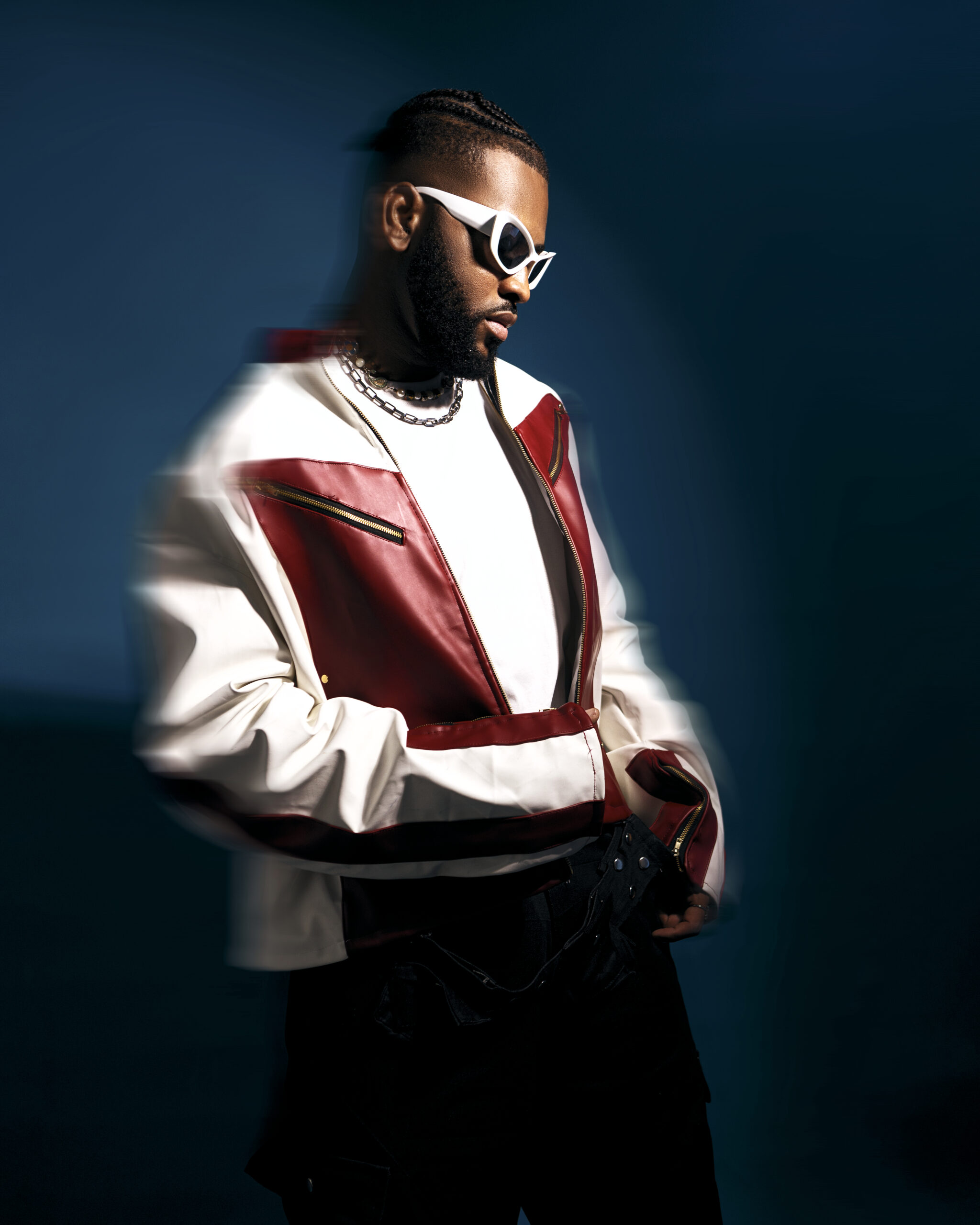
[ad]
What’s the core message of the album?
This album is like a soundtrack for the lives of the ‘young and chosen’. I want the people who hear this to feel seen. I want them to feel like they can relate to the music, and then go off feeling like there is a bigger calling upon their life.
How exactly did you hone your musical influences?
Everyone in my house has always loved music; I grew up around a lot of music. My earliest musical influences were Cece Winans, The Winans brothers, Michael Jackson, hymns that played in my house, and also largely the music played by the church band I was once a part of.
I also have some rap influences too. When I was young, I grew up hearing 50 Cent, Eminem, and Tupac. But when I got older, I fell in love with Christian rap and listened to that exclusively.
Who would you say were people you looked up to?
I had a number of people that I’ve always appreciated and still do appreciate. Ada Ehi, Pastor Nathaniel Bassey, and Frank Edwards are some of them. In recent times, I listen to Dunsin Oyekan too. Honestly, I am a fan of all of my friends who are also artists in my space, like Marizu, Greatman Takit, Nnoli, Amos, and so many others.
[ad]
What is your creative process like?
For me, album mode is always different from just recording individual songs, because in album mode you have a mental picture of what you are trying to make the full body of work sound like. So that influences how you create the sounds that I would lean to just for the sake of cohesiveness and the topics that I’m trying to speak on.
However, my general creative process of just writing a song mostly starts with getting the bed of the music bed already, which can be an instrumental, or a chord progression on the drums. And I like to write melodies first because my theory is that in places where people don’t understand the language that I’m speaking, the language of melody can always be understood by everybody.
I write a bunch of melodies, and then I listen through them to find the ones that are the strongest. Then, I do a sort of curation to make it into a full song before I begin to put words to it.
READ ALSO: Limoblaze wins best gospel act award in explosive MOBO debut
Do you ever make music spontaneously?
There are times when I have an idea in my head and it just stays sitting there for a long time before I turn it into a song. But sometimes the idea could be biting me so much that I can’t wait, and I just directly go into creation mode.
[ad]
So, on this album what are your top creative sessions?
I think the song Rest would be an interesting one because that is one song I wrote without any chord progression or any instrumental. I just started writing it in my head. And I haven’t done that in a long time. Another one is the session for Blesser because, when I started writing that song, it started as a reggae song and somehow we ended up as a drill song.
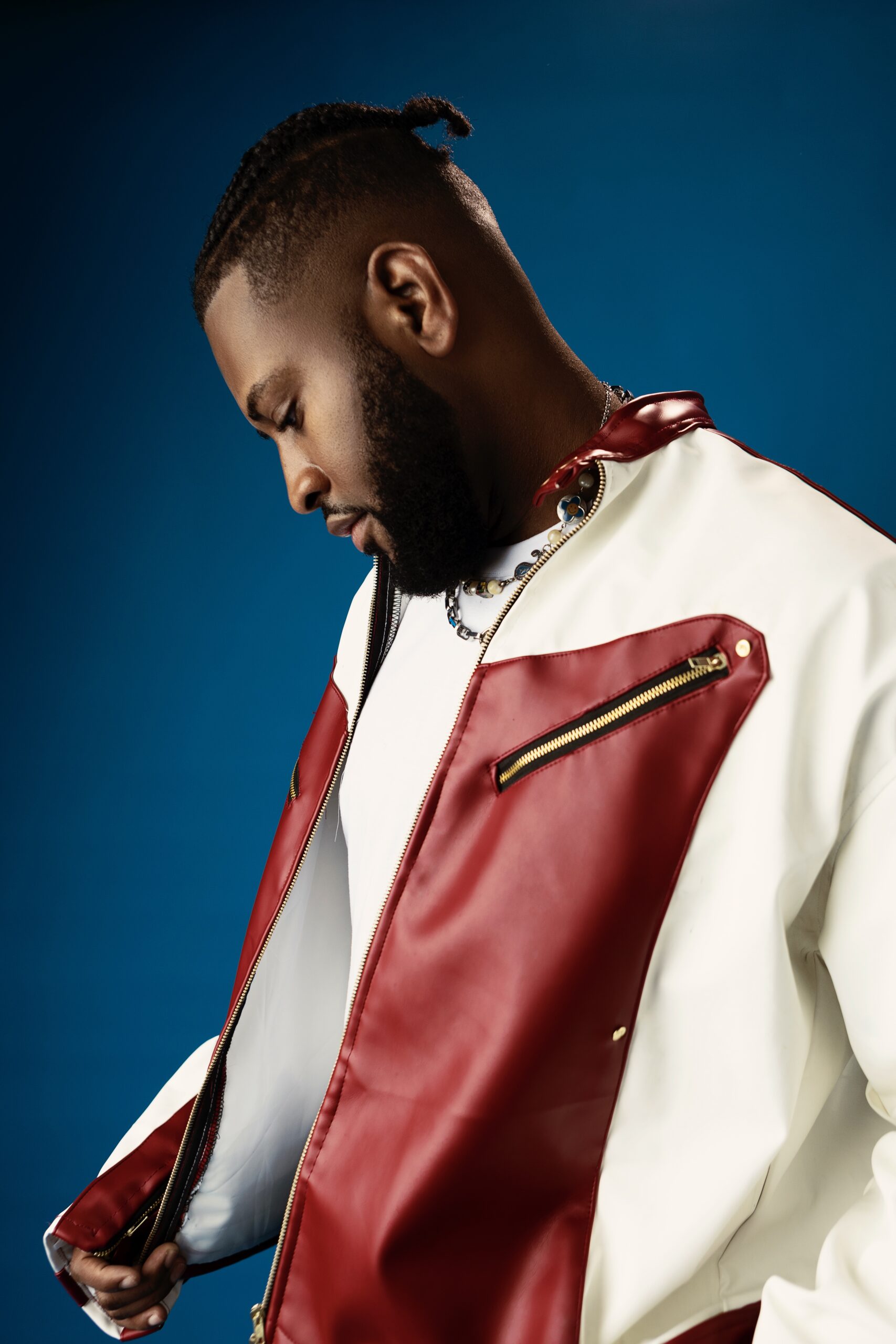
You have a very fusion-focused approach to your music. Is this something you encourage other gospel musicians to do?
I don’t know if I would say I encourage other gospel musicians to explore it because, at the end of the day, it’s all about knowing what your sound is.
As an artist, where I thrive most is with sound fusion; that is where my genius shines. So, I think it just falls to the artist’s sound. Everybody should find their own sound, and your sound could be a fusion of other things. Your sound could be something that we’ve never heard before.
Do you have any restrictions on working with secular musicians?
I’ve worked with Johnny Drille [and] Banky W. These people are my real-life friends, and I know their character. Though they are not classified as Christian musicians, they love Jesus. This is not a sin conversation. It’s not even a conversation of right and wrong.
It’s more of a conversation of what’s the why? Why am I working with this person? And if I can’t find any reason behind it besides a strategic move to boost some numbers or whatever, then I will never do it. If the why is not honourable and God-glorifying, why that? Everybody I work with is my friend. I make it a priority to only work with my friends.
[ad]
How do you feel about awards, especially after Tems’ BET saga?
First of all, Tems is a phenomenal artist. I would say the uproar coming after she won is kind of pointless; it should have come at the point where she was nominated.
You can question the nomination. However, these awards are done by submissions. So, if she got up and submitted in that category and won, I don’t think it’s my business what the award organisers think. Numbers-wise, she probably has the largest and most active fan base in that category. Voting is needed. The question would have been why she was nominated in the category.
There are certain awards that I won that I’m just really grateful for. I’m grateful for the nod that my professional peers give, but besides that, personally, I don’t care much for awards.
What do you do when you’re not making music?
Honestly, if I’m not making music, I am just playing FIFA. I love acting. And then I’m also a businessman. I keep exploring business ideas, and I also love to work out.
In terms of talent development in the gospel music scene, what are your ideas on developing that aspect better?
I think most Christian musicians come from church, and the church is still—in Nigeria, at least I would say—the best pool for developing talent.
Musicians who started out from church are usually the best, but I would say in the Nigerian Christian music space, there has to be a working system. I don’t think there is a system or an industry yet. There are barely any structures. There are cliques here and there, though. Also, each generation has to do a better job at extending an arm to the next generation.
[ad]
So, to conclude, what’s next for you now?
Getting on the Young and Chosen tour, starting in Africa, then Europe, and then the US. Then, the album’s deluxe [version will be released].
What would you say is the vision for Limoblaze?
The older I grow, the more I want to go as far as God would have me go. To be honest, I don’t want to have grandiose expectations and place my heart on them. I would just rather go as far as God would have me go.
[ad]



